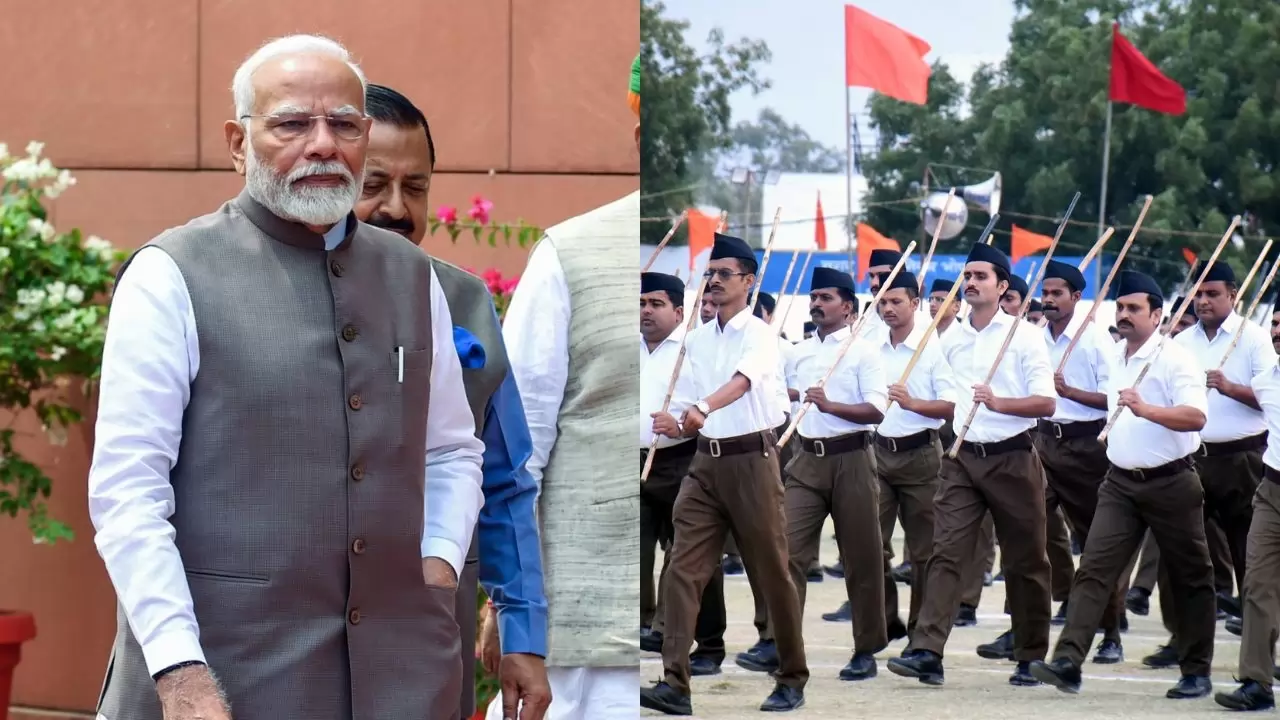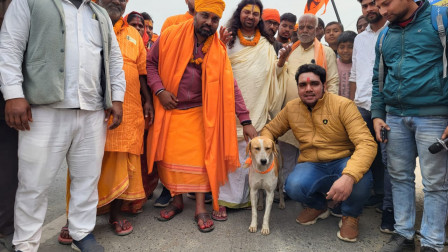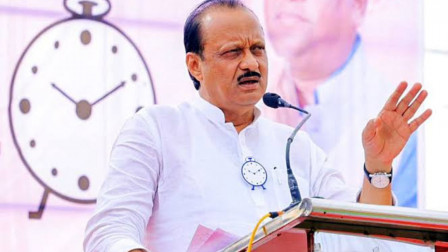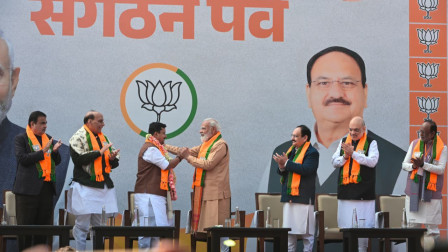
ANI
New Delhi: The central government has lifted the long-standing ban on its employees participating in activities organized by the Rashtriya Swayamsevak Sangh (RSS). This decision has ignited a fierce debate among political parties and the public, with various stakeholders expressing their opinions on the implications of this policy change.
58 years ago, the Central Government had imposed a ban on government employees taking part in the activities of the RSS. Modi govt has withdrawn the order. pic.twitter.com/ONDEnS3Jmi
— Pawan Khera 🇮🇳 (@Pawankhera) July 21, 2024
The Indian National Congress (INC) has been vocal in its opposition to the government's decision. Congress leaders have criticized the move, arguing that it could undermine the neutrality and professionalism of the civil service. In a recent statement, a Congress spokesperson remarked, "This decision allows bureaucracy to come in knickers," alluding to the traditional RSS uniform and questioning the appropriateness of civil servants engaging in political activities.
On this day in 1947, India adopted its National Flag.
— Mallikarjun Kharge (@kharge) July 22, 2024
RSS opposed the Tricolour, and Sardar Patel had warned them against it.
Sardar Patel had also banned RSS after Gandhi ji's assassination on February 4, 1948.
Modi ji has lifted a 1966 ban on Government Servants attending RSS…
The ban on government employees participating in RSS activities dates back to the post-independence era, aimed at ensuring that civil servants remained apolitical and focused on their duties without being influenced by any ideological organization. The RSS, known for its Hindu nationalist ideology, has been a contentious organization in Indian politics, often associated with the ruling Bharatiya Janata Party (BJP).
The government order lifting the ban has been circulating on social media, further fueling the debate. The order has sparked discussions on whether this change aligns with the principles of a secular and impartial government workforce. While supporters of the RSS and some BJP members have welcomed the decision, viewing it as a step towards recognizing the contributions of the RSS, critics argue that it blurs the lines between governance and political ideology.
Experts and analysts are divided on the potential implications of this policy shift. Some believe it could lead to increased polarization within the civil service, with employees possibly feeling pressured to align with or against certain ideological positions. Others argue that it might embolden similar organizations to seek participation from government employees, further complicating the landscape of public service in India.








Copyright © 2026 Top Indian News
